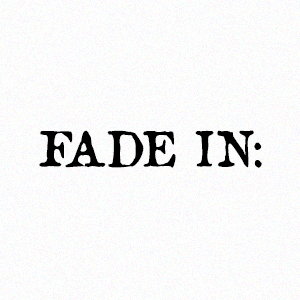A Foray into Screenwriting
In my early twenties, I took some drama courses because I had a mild interest in acting. One of the teachers was a film and television director. I asked him if he’d look at any screenplays I had. He said he would.
 I’d never written a screenplay, and had no idea how to do so. But I saw opportunity. Now I just needed to learn the format.
I’d never written a screenplay, and had no idea how to do so. But I saw opportunity. Now I just needed to learn the format.
The library didn’t have any instructional books about screenwriting, but they did have one about playwrighting. We were still three or four years away from the internet becoming a thing.
I wrote two screenplays (using the playwrighting book as a guide) – both action-oriented. One was a typical cop-buddy flick that was common to the time. The other I don’t want to talk about because I’ll reference it later, and there are some murky (and potential plagiarism) issues surrounding it (but, to be clear, not involving this director).
The director wasn’t particularly interested in the stories, but he thought I could write. That was flattering. So far, all my praise had come from people who knew me, or were connected to people who knew me. There was always a danger of bias. This director was impartial.
(I actually handed the scripts to one of the other teachers, who was an actor; he was surprised I could write – I think he believed I was a hood or a buffoon or a combination of both.)
I was just winging it when it came to writing, making it up as I went along. But now I felt that I was maybe kinda sorta heading in the right direction. I had no formal education. Everything was self-taught, from the writing itself, to studying stories in books and movies and television, trying to identify what did and didn’t work, how structure functioned, and how characters were employed.
The director later commissioned me to write an action feature – I won’t go much into the story, other than to tell you how grandly I fucked it up.
I moved too far away from what he wanted, thinking I could do something better. It’d be easy to rationalise it as a risk, but it wasn’t. It was pure arrogance. With my backlog of zero experience, I thought I could wow him with whatever I wrote.
He really didn’t like it. I wrote something closer to his brief (which he liked better), but by that stage he’d moved on from the project.
It must be a right of passage for inexperienced writers to believe they know it all. It’s something I went through, and an attitude I’ve seen many other inexperienced writers share.
About thirteen years ago, I was editing an anthology, and one writer railed against the editing, and complained about a plot issue I brought up, saying he believed his readers would get it. He withdrew his story. I told him four of us hadn’t gotten the plot issue, and saw the same concerns.
About six months later, my friend Blaise and I had coffee with the editor of another anthology, I asked him if he had any horror stories. He said they edited a story, and the writer threw a tantrum and withdrew the story. It was the same writer.
Inexperience comes with naiveté, as well as stupidity.
And blissful arrogance. There’s always a good dose of that.
Anyway, that first screenplay commission has always been a major regret of mine – to think I knew it at all, rather than giving him exactly what he wanted.
It’s always something I wish I could fix.